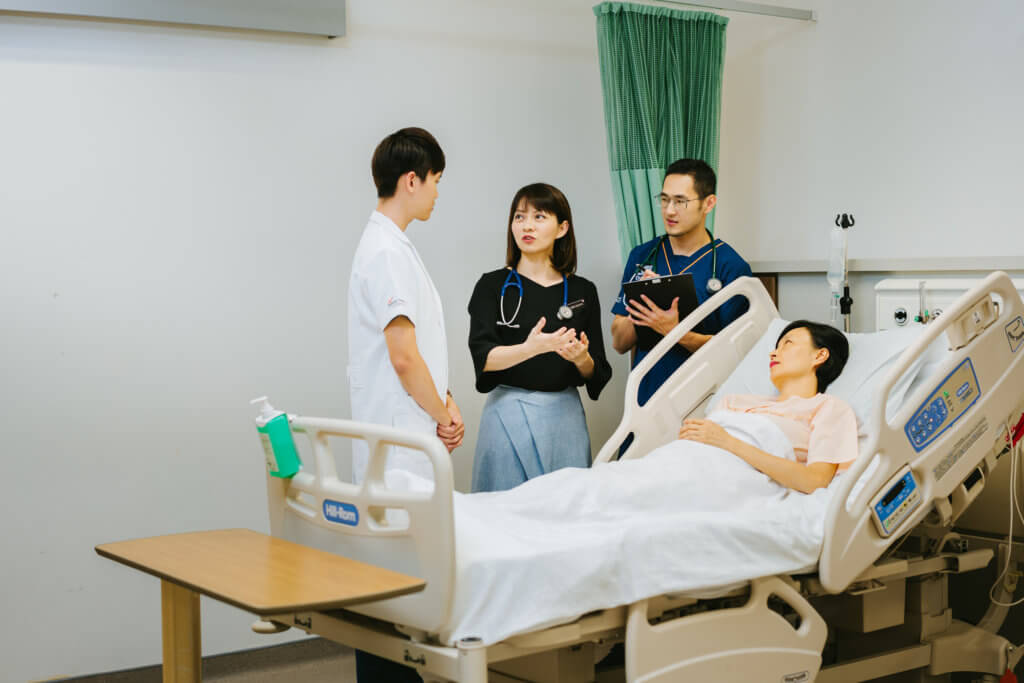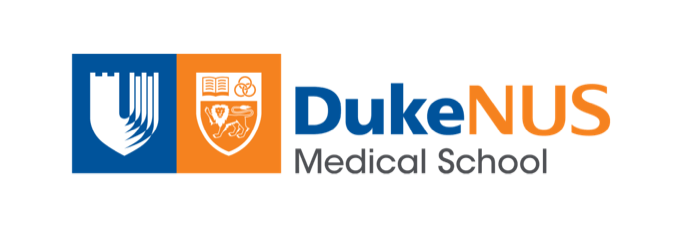While some dream to be doctors, Tan Kai Wei, a current Year 3 MD-PhD student from Duke-NUS Medical School, aspires to be more than that. He aims to be a doctor who not only practises the art of medicine but also contributes to medicine’s progress with a trump card: the knowledge, skills and experience he’s gained as a undergraduate biological sciences major.
“It is my dream to run my own lab conducting translational research and clinical trials,” Kai Wei revealed with much enthusiasm. “Dr Tan Min-Han is my role-model. I met him when I worked at the Agency for Science, Technology and Research (A*STAR) and the National Cancer Centre Singapore. He is a Clinician-Innovator-Scientist, and his journey has inspired me. His discoveries and innovations have advanced medicine and helped him find a niche that he is happy in.”
Today, Kai Wei is pursuing the MD-PhD programme, in the field of Nuclear and Molecular Imaging. The Duke-NUS MD-PhD programme allows individuals who are passionate in science to have four to five years of protected time on their clinical training to allow them to delve deep into their scientific training and interest of choice. This unrivalled opportunity allows MD students to pursue research interests as well as innovations alongside PhD candidates. Upon completion, their training will aid their path in completing their MD and residency programme.

Source: Duke-NUS Medical School
Kai Wei and his aspirations exemplify the Duke-NUS “Clinicians First, Clinicians Plus” vision. This approach prepares students to not only practise medicine, but to also improve the practice of medicine to improve lives. Versatile backgrounds — such as engineers, accountants, lawyers, pharmacists, and more — not only make cohorts diverse, but also distinguish them from traditional clinicians. Here, all backgrounds are harnessed to create curious, progressive and innovative medical professionals. While every medical school trains clinicians who are competent in all doctoring roles — Duke-NUS goes further.
“‘Clinicians First, Clinicians Plus’ signposts that our graduates are expected to be more than just a clinician seeing patients,” explains Scott Compton, who is Professor and Associate Dean for Medical Education. “We aspire to promote the development of clinicians that will lead change in systems to improve the health of not only their patients, but for patients everywhere,” he shares. Compton leads the MD Programme of Learning and the Quality Assurance & Accreditation Programme. He is also the Director of the Research & Scholarship curriculum thread which promotes the “Clinicians Plus” element of the curriculum.
The Research & Scholarship curriculum is the “crown jewel” of the Duke-NUS curriculum. In the span of eight months, students get to interact one-on-one with research faculty, participate in cutting-edge biomedical research, develop grant writing skills, contribute to the scientific literature, and refine presentation skills. “This period serves not only to teach them the skills that they need, but it gives them the chance to deeply experience how being innovative and solving problems fits within a clinical career,” shares Compton.

Source: Duke-NUS Medical School
They also carry out research with faculty members at Duke-NUS, Duke University (US), National University of Singapore, or other Singapore research institutions such as A*STAR. “We have over 250 highly qualified research mentors that students can work with during this time,” Compton says.
It’s an encouraging and inspiring approach to medical school. Kai Wei remembers his seniors pioneering an initiative to teach juniors. A quick request to the administrator was all it took to get the idea going. Today, it’s a running tradition. Kai Wei himself saw a similar need to educate others about his MD-PhD programme, as well as other medical or scientific topics, following his stint as a student ambassador. “I brought it up to the admission team and now they are currently supporting me with the backend work for this YouTube channel,” he says.
Having dedicated and creative educators helps Duke-NUS realise this vision. Teachers are no mere sages on the stage asking students to memorise and regurgitate it back in tests. At Duke-NUS, it’s quite the opposite. “It starts on the first day of medical school — where students have immediate opportunities to ask questions, apply their knowledge to solve problems, and most importantly, recognise the limits of their knowledge and develop the necessary personal tools that they need in order to solve that problem,” explains Compton.

Source: Duke-NUS Medical School
Apart from building on interests, the school actively incorporates examples of innovation into their programmes, ensuring students graduate with enough exposure to do so themselves. Compton mentions the Innovation and Design Thinking module as an example, where students begin by identifying an unmet medical need before going on to develop an innovative solution. “The students really loved this course. It is fun, an opportunity to be creative, and a chance to think outside the box,” he says.
As we emerge from a devastating year in global health, such ingenuity and agility will be needed more than ever. With its Clinicians First, Clinicians Plus approach, Duke-NUS graduates will be up to this task and many more to come.
Follow Duke-NUS Medical School on Facebook, Twitter and YouTube













